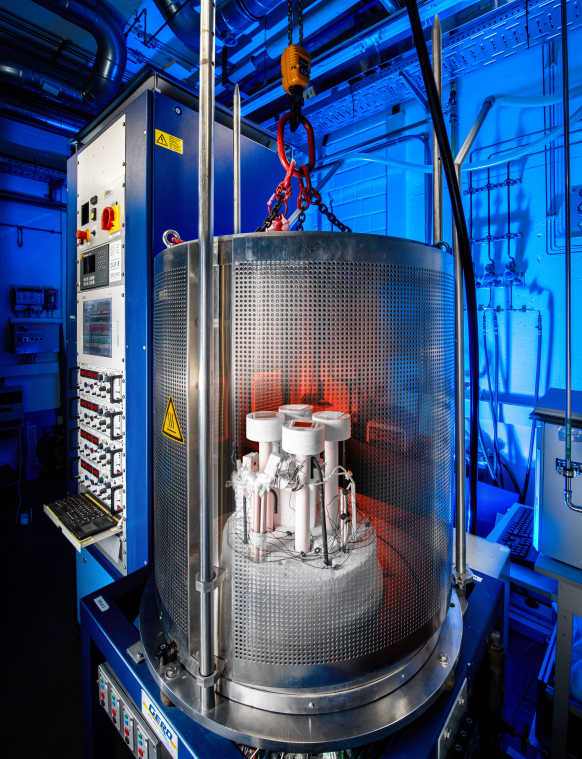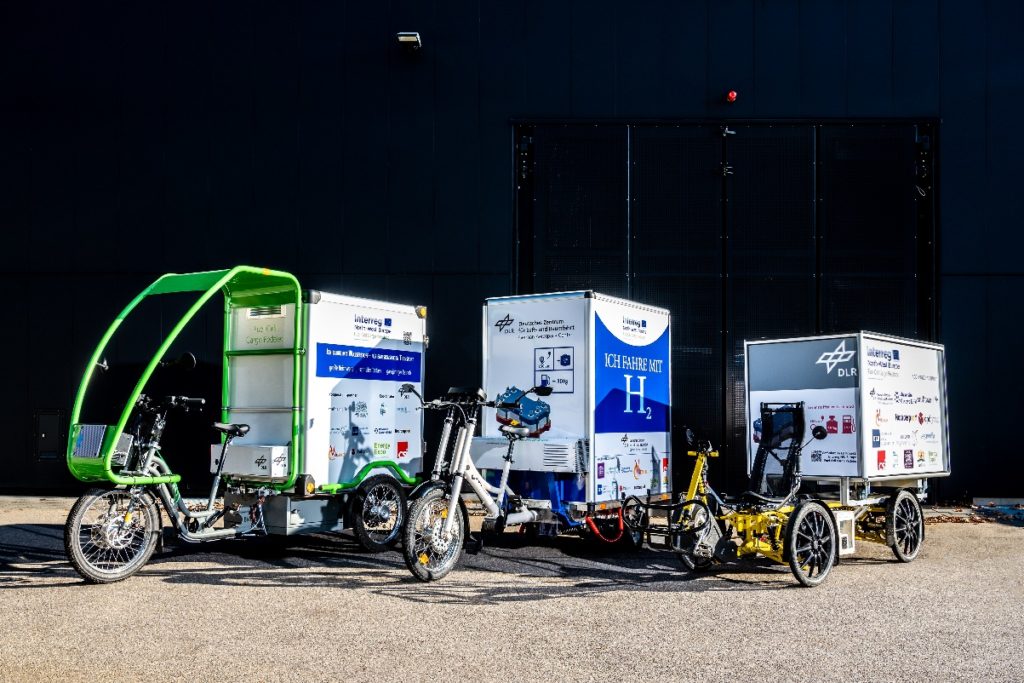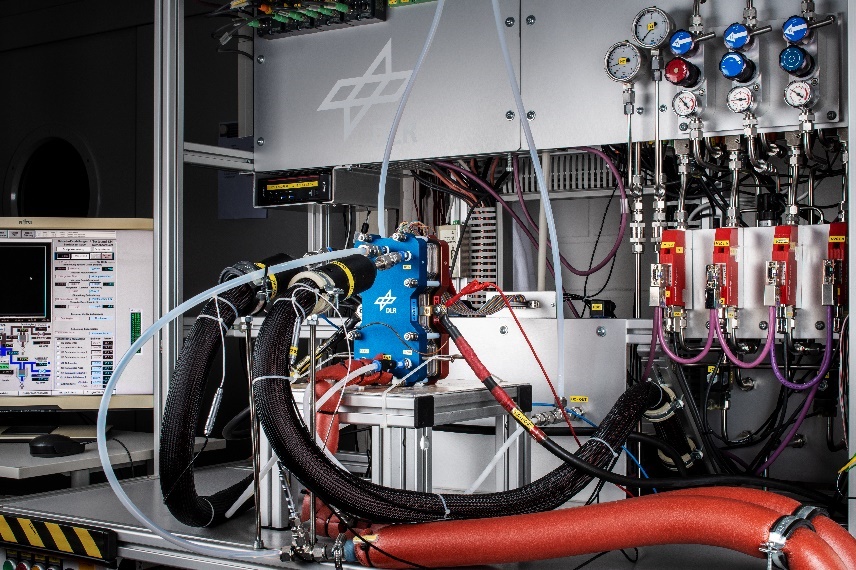Fuel cells, batteries and electrolysers for mobile and stationary applications
Power2Chemicals
To achieve a climate-neutral economy, technologies based on using carbon dioxide (CO2) as a versatile raw material should be explored and used in the future. The DLR Institute of Engineering Thermodynamics is investigating different ways in which CO2 can be converted into higher-grade chemicals and fuels. The Power2Chemicals exhibit presents one of these approaches, which is being pursued as part of the ChemAmpere campus initiative at the University of Stuttgart. Using electricity from renewable sources and water, CO2 from industrial exhaust gases can – depending on the used catalyst – directly be converted into valuable products that play a role in the chemical industry.
Fuel cell cargo bike – emission-free delivery taking the load off traffic in the city centre
The EU project Interreg North West Europe (NWE) is testing fuel-cell powered cargo bikes, so-called Fuel Cell Cargo Pedelecs (FCCP). Compared to other propulsion technologies such as batteries, fuel cells offer the advantage of a longer range, a longer daily service life and short refuelling times. The special features of the fuel cell system developed at the DLR Institute of Engineering Thermodynamics include a continuous output of 400 watts with a maximum output of 1000 watts and a hydrogen tank with a capacity of 300 grams that can be filled in around three minutes. At the H2FC Fair, a so-called ‘Energy Box’ shows all the different components. The fuel cell cargo bike itself is on display at the central DLR stand.
FCCP – Fuel Cell Cargo Pedelecs | Interreg NWE (nweurope.eu)
Virtual reality goggles on and into the lab
With virtual reality goggles, visitors get an exciting 3D insight into the following DLR test facilities:
- Large-scale research facility KeMeNaTe, with innovative coating technology for high-temperature fuel cells and alkaline electrolysers
- Test stand GALACTICA for module testing in the field of high-temperature electrolysis and fuel cells
- Climate chamber and glove boxes in the DLR Battery Laboratory in Stuttgart for testing battery types
Links
- Main page of the department:
DLR – Institute of Engineering Thermodynamics – Electrochemical Energy Storage - Technical facilities:
DLR – Institute of Engineering Thermodynamics – Electrochemical Energy Technology – Technical Facilities
German Aerospace Center (DLR)
Electrochemical Energy Technology
Prof. Dr. rer.nat. K. Andreas Friedrich | Email Andreas.Friedrich@dlr.de



